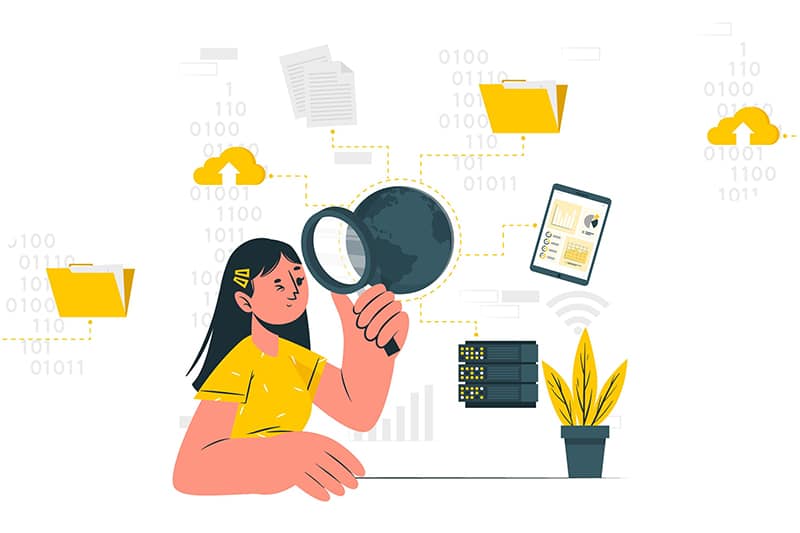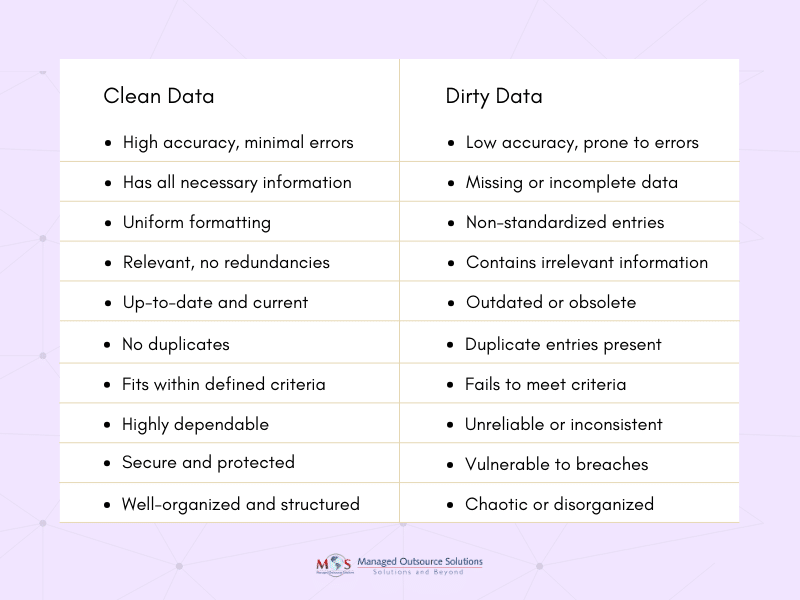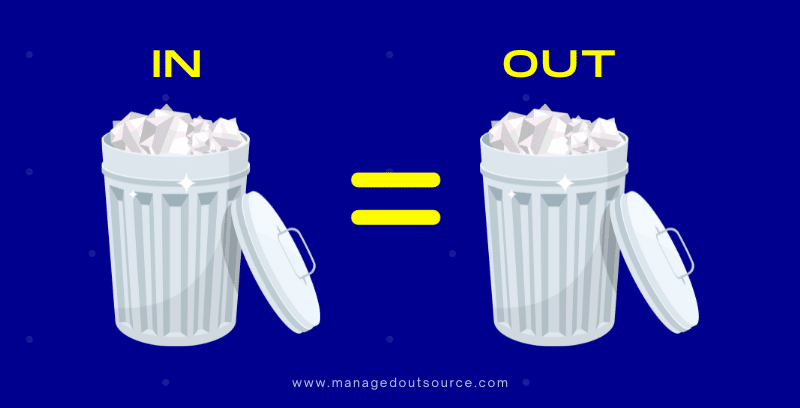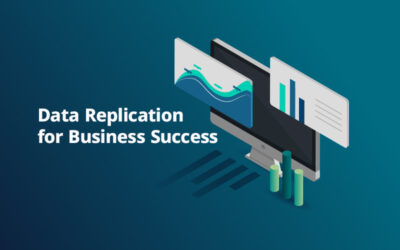We live in a data-driven world. Have you ever wondered how much data we put out there? In October 2021, an article by Seed Scientific estimated that the global data volume reached 44 zettabytes in 2020, and predicted that daily data generation worldwide will reach 463 exabytes by 2025. From statistics, raw analytical data, and sales numbers to customer feedback data, and other sets of information, your business collects a vast amount of structured and unstructured data every day. But collecting data is not the goal. You need to mine your data to obtain valuable insights from it to make informed decisions for business growth. That’s where data quality comes into play. Data cleansing services can ensure that your information is free of errors and inconsistencies. Data detox drives improved decision-making, strengthens customer relationships, improves operational efficiency, and results in substantial cost savings.
This blog explores the concept of data cleansing, its importance in today’s data driven business landscape, and how dirty data can impact your operations. We are also going to give you tips and best practices for maintaining clean data.
What is Data Cleansing?
Techopedia defines data cleansing as “the process of altering data in a given storage resource to make sure that it is accurate and correct”.
So, what is unclean data? Well, unclean data, often referred to as dirty data, is information that has various flaws, such as duplicates, outdated entries, security vulnerabilities, incomplete records, inaccuracies, or inconsistencies.
Why is Clean Data so Important?
According to a Statista report, in 2020, a significant 77% of U.S. companies reported that they relied on data for making business decisions. Organizations that analyze, manage, and convert their data into useful information can attract and retain customers. Big data provides value by creating information transparency. However, large volumes of customer information and internal records are prone to errors and loss of accuracy over time.
Impacts customer satisfaction
Poor data quality can directly impact customer satisfaction. If your customer data like names and addresses are incorrect, it can lead to billing mistakes. Imagine a customer ordered a new phone online, and the company had the wrong shipping address because of a data error. The phone is sent to the wrong place, and the customer has to wait longer to receive it. This mix-up not only frustrates the customer but also made them question the company’s competence.
Increases operational costs
Poor data quality increases operational costs because time and other resources are spent detecting and fixing errors. Imagine how much time it can take for a customer service team to fix wrong addresses, orders, and bills. And this can impact operations throughout the company. The shipping department fixes order entry mistakes, human resources corrects employee information, and supplier management deals with supplier errors.
Causes financial losses
Dirty data can cause financial losses. Gartner notes that businesses incur an average annual cost of $12.9 million due to subpar data quality. Marketing trends are continually changing and your marketing strategies depend on accurate data. If you rely on outdated data, you cannot accurately track insights and inaccuracies could disrupt your business operations and lead to losses.
What is Poor Data Quality?
Poor data quality refers to incomplete, redundant, or irrelevant information and lacks consistency. Common errors in extensive datasets include multiple entries, incorrect data, missing information, and aliases.
Clean Data versus Dirty Data
Every business needs to take steps to clean their data. What happens if they don’t? The simple answer is: Garbage In, Garbage Out, which means the quality of output depends on the quality of the input.
Big Data detox is a necessity. The benefits of cleaning your data include:
- Removes major errors and inconsistencies that occur when multiple sources of data are pulled into one dataset.
- Will make everyone on your team more efficient and you can quickly get what you need from your dataset.
- Helps you figure out what your data is supposed to do and where it comes from.
- Happier customers and fewer frustrated employees
- Ensures compliance with data privacy regulations
How does Data Cleansing work?
The process of data cleansing involves identifying and correcting errors and inconsistencies in a dataset to ensure its accuracy and reliability. It typically involves the removal of duplicate records, the standardization of data formats (such as addresses or names), and the validation of information to ensure it is up to date and accurate. This process can be automated using software or done manually by data professionals who review and rectify inaccuracies, helping organizations maintain high-quality data.
Now let’s look at how you can keep your database clean.
Data Cleansing Best Practices
Here are four steps to optimize the integrity of your organization’s data:
Understand your users
Know who is interacting with your data platform. Understanding your users and how data moves through your organization is essential for maintaining data integrity and functionality.
Track errors
Maintain a log of common error patterns to simplify the identification and correction of inaccurate or corrupted data. Keeping records is crucial to ensure that errors do not disrupt the workflows of other departments.
Invest in skills, tools, and processes
Automated data cleansing improves data quality and efficiency. Choose the right software and ensure effective tool usage. It automates error identification, saving time and reducing errors. Communicate with your team and introduce the updated cleaning processes to encourage everyone to follow it. After you’ve cleaned your data, maintaining its quality is essential. Keeping your team informed will assist in refining customer segmentation and delivering more precise information to both current customers and potential leads.
Develop a comprehensive adoption strategy
Whether introducing a new system or retraining employees with limited technical skills on an existing one, you need a carefully planned adoption plan. Aligning employee actions with organizational objectives is critical to the success of your data initiatives, safeguarding your entire project from potential pitfalls.
Boost ROI with Outsourced Solutions
Maintaining high-quality data will reduce operational inefficiencies and enable you to make more informed decisions and boost ROI based on clean and reliable information. Many businesses are investing in business process outsourcing services to enhance data quality. Data janitors can ensure your business information is accurate, complete, consistent, relevant, up-to-date, unique, valid, reliable, secure, and user-friendly.
Write to us – share your own experiences with data cleansing.
Get accurate data to power your business!
Call (800) 670-2809 to Speak to an Expert.






